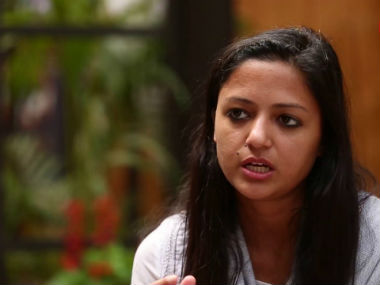I want to share a thought that has been on my mind for a while. We’re grateful for all the love and support that we have received for our cause. We get numerous messages from people across the country saying how proud they are, how much they’re inspired by us and how much they love and adore us.

Image: News18
In particular, I get messages from a lot of women who say how much it inspires them to see someone just like them in active public life. I also get messages from a lot of men saying that they would want their daughters and other women to be like me. At times, when we are visiting someone’s house, especially in smaller towns, the men will even go to the extent of telling their daughters that they must be like me, or even using me as an example to berate his wife for being concerned only with clothes or weddings, and “not taking up the cause of the community”.
Often enough, in these households, the women are performing all the traditional gender-assigned roles: bringing roti after roti while we eat or staying in the kitchen throughout the visit, while we relish the food made by them. I often have to step into the kitchen in order to talk to the women who are too shy or overawed to even talk to me, let alone talk to the gathering! Needless to say, this is more a feature of Muslim homes where the hospitality is amazing, but the gender-segregation is shocking.
Growing up in Kashmir, I wasn’t used to this, and I often thought that segregation is a myth. However, interacting with Muslim families across the country has convinced me that segregation is real and thriving. Now, these same families who look up to me as a leader would never want their own women in the role that I’m in. Or, in other cases, they would want them to be as “committed to the cause of the community“ as I am, but would never think of what it entails. Leadership, for men, is a black box. A woman has to decide, at every step, what she should and shouldn’t do. Going to a riot-affected area for a 3-day visit? Going to a late-night TV show? Going to work? Taking a cab late night? Being the only woman on a political tour? Travelling alone across state and national boundaries? Should I? Shouldn’t I?
Since women leaders do not mostly talk about these things, women leadership is a mystery, a black box, some kind of rocket science to most. Now, it is clear that our community cannot progress until/unless women are equally empowered and allowed to develop and grow. Just like our country cannot progress without the development and growth of every section and every community. But the question is: will the community allow women to do everything that is required to lead?
It is difficult to lead. It is doubly difficult for women to lead, because we have to make calculations about clothes/stalkers/appearances/monthly period, etc. that men do not have to make. Women leaders need additional support from their families, they need additional freedom of mobility and freedom from traditional gender roles. Now, gentlemen, while you admire women leaders who are already making a mark, please understand that you need to develop and empower women in your own family who are capable of leading. Not only are they NOT supported by their families, they even have to face social boycott if they decide to speak up – case in point being Ishrat Jahan who fought against the practice of triple talaq!
This advice is also for non-Muslim men who admire my leadership. Now, I have left behind a lucrative career because I have experienced oppression first-hand. Most of you would not let your daughters take up activism because – well, that is something that women from “good families” (elite or upper-caste Hindu families) do not do. Only jholawallahs like us should do that. So, gentlemen, when I get messages of admiration from you, it feels great, but if you show up for a protest or a political meeting without your wife or daughter or sister, there’s slight condescension in your admiration.
In India, since Independence, the number of women Parliamentarians has never been more than 10-12% – this is not an accident. It is a result of these structural barriers to women’s participation in public life. Also, if women are not treated as equals in society, violence against women will thrive. So, don’t get surprised when women are raped, abused and harassed – it is a result of inequality in power and NOTHING ELSE. I’m not going to paint you a rosy picture – activism is difficult and, unless you don’t sacrifice enough, you cannot be in leadership positions.
Not only is the sacrifice involved personal, your family also makes a lot of sacrifices to accommodate your unusual lifestyle and needs. If you want more women to lead, share in the household work, share the burden of child-rearing, cook, clean and assist your partner, plan your family according to her goals. If women are not urgently empowered and represented in positions of leadership, don’t expect your daughters and sisters to be safe from sexual violence or gender-based violence. The power imbalance between men and women is highly unnatural, skewed and perverted. In such an environment, we’ll always have oppression of women and sexual violence. Hope this makes sense. Peace out!
*The text was taken, with permission, from Shehla Rashid’s Facebook wall.
Courtesy: Two Circles